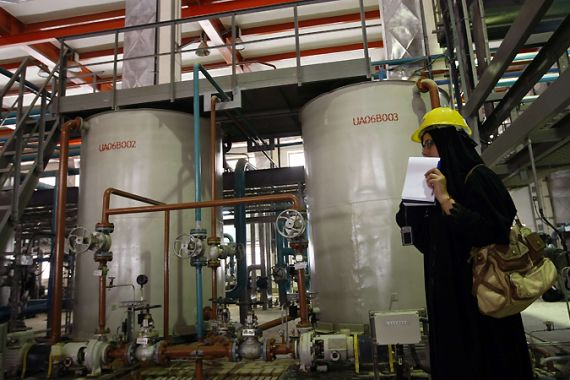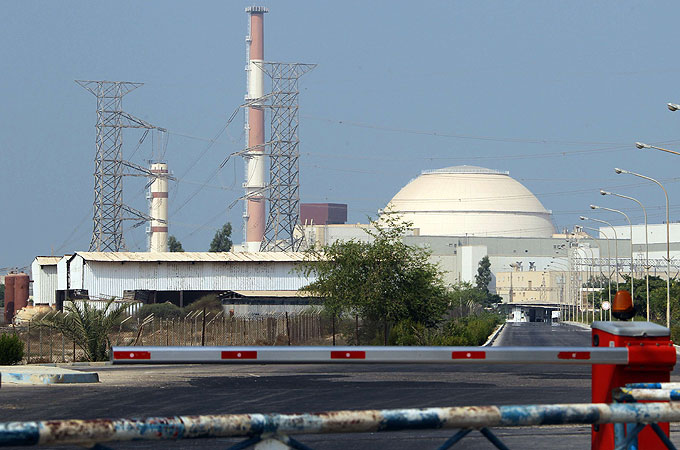Russia bans Iran missile delivery
Russia cancels its delivery of S-300 defence missile sytem to Iran, but its deal to sell cruise missiles to Syria holds.

 |
| Iran could use surface-to-air missiles to protect its nuclear facilities [AFP] |
Citing UN sanctions, Russia has cancelled a planned sale of advanced missiles to Iran. Dmitry Medvedev, the Russian president, has issued a decree prohibiting the delivery of S-300 air defence missile systems and other weapons to Iran.
Reuters news agency reports that the presidential decree, issued on Wednesday, brings trade rules for Russia and its companies into line with the sanctions, pleasing the United States and other Western nations that are deeply worried about Iran’s military capability.
“What’s interesting about this order is that it not only bans the sale of surface-to-air S-300 missiles, it also bans other weapons system,” Alexander Nekrassov, former adviser to the Kremlin, told Al Jazeera.
He added that the decree also bans senior Iranian officials “who are somehow linked to the nuclear programme” from visiting Russia.
Moscow pressured
Israel and the United States long lobbied Moscow to scrap plans to sell Tehran the high-precision missile systems, and Russian officials promised not to deliver them after supporting a fresh round of UN sanctions against Iran in June.
The statement was released as the five permanent members of the UN Security Council plus Germany met in New York on Wednesday to develop a strategy for dealing with Iran’s nuclear programme.
PJ Crowley, US State Department spokesman told Al Jazeera that the US was willing to “address Iran’s nuclear programme, make clear that it is entitled to a civilian programme, but not entitled to construct nuclear weapons.”
“If Iran is ready for that conversation, the United States and others are ready to have it,” he added.
The decree bars the delivery to Iran of “any battle tanks, combat armoured vehicles, large-calibre artillery systems, combat helicopters, military ships” and missiles covered by a UN register, as well as spare parts, the Kremlin said.
The timing of the decree could have been intended to appease the West after the start-up of a Russian-built nuclear power plant in Iran last month and the recent announcement of plans to sell missiles to Syria, which alarmed Israel and Washington.
Russia backed new UN Security Council sanctions against Iran over its nuclear activities in June, and French officials said later that Vladimir Putin, the Russian prime minister, told Nicolas Sarkozy, the French president, that Moscow would not deliver the missiles to Iran. Before that, Russian officials had made conflicting statements about whether the sanctions against Iran would prevent the sale.
The S-300 is a mobile, long-range air defence system that can detect, track and destroy ballistic missiles, cruise missiles and low-flying aircraft.
Iran announced a deal to acquire S-300s from Russia in 2007, and Russia has used it as a lever in its diplomacy with Tehran and the West.
Russia’s ties with Israel and the United States have been warming and the Kremlin has expressed growing irritation with Tehran’s defiance of efforts to rein in its nuclear programme. Yet Russia angered Israel and caused US concern by saying last week that it would go ahead with a $300 million sale of Yakhont anti-ship cruise missiles to Syria.
Russian officials have rejected Israeli concerns that the missiles could fall into the hands of Hezbollah fighters in neighbouring Lebanon.